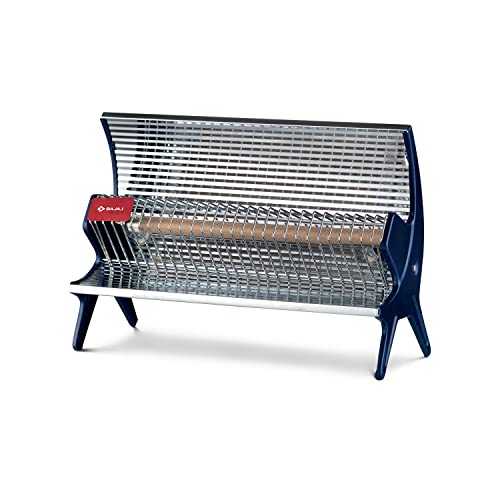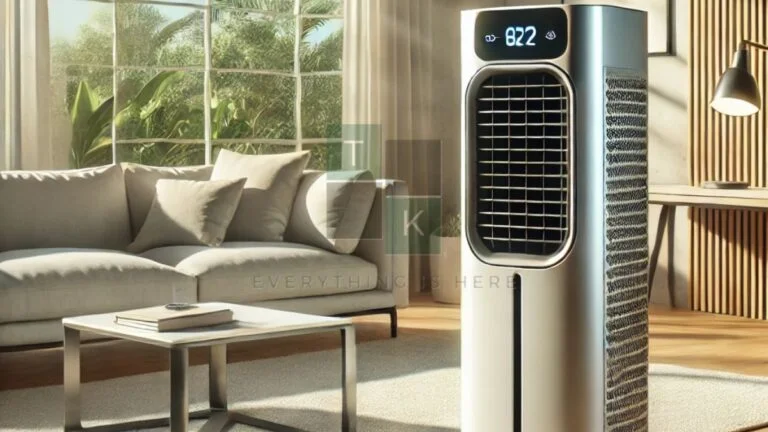Understanding Different Types of Room Heaters
When choosing a room heater, it is essential to understand the different types available, as each serves various functions, efficiencies, and suitability for specific environments. One prevalent type is convection heaters, which operate by warming the air in the room. These heaters function by drawing cold air through the unit, heating it, and then circulating it back into the room, creating a comfortable environment. They are especially effective in larger spaces, although they can take longer to warm up a room compared to other types.
Another commonly used room heater is the radiant heater. These devices emit infrared radiation to directly warm objects and individuals in their path, rather than heating the air. This makes radiant heaters ideal for spot heating, such as in a small bedroom or office. They provide almost instant warmth, but their effectiveness diminishes significantly in larger areas or rooms with multiple occupants. Users must be cautious with radiant heaters, as prolonged exposure can lead to overheating.
Oil-filled radiators, a third type of room heater, are designed to function by heating oil stored within the unit. Once heated, the oil radiates warmth into the room, ensuring a consistent and comfortable temperature without drying out the air. This type of heater is energy-efficient and offers a gentle heat that makes it suitable for long-term use. However, oil-filled radiators can be bulky and may take longer to heat up compared to other models.
Each of these heater types offers unique advantages and drawbacks, impacting their suitability depending on the size of the room, desired heating speed, and overall efficiency. By evaluating these factors, individuals can make informed choices regarding their heating options for maximum comfort and health.
Health Considerations When Choosing a Room Heater
When selecting a room heater, it is essential to consider the potential health impacts associated with different heating methods. Various types of heaters, including electric, gas, and oil-filled radiators, produce heat differently, which can significantly influence air quality and overall well-being in your home. Unlike traditional heating methods, some electric heaters may not promote efficient air circulation, leading to a stagnant environment that accumulates allergens, dust, and pollutants.
One of the most notable concerns is the effect of dry heat generated by certain heating systems, which can lead to discomfort, dry skin, and irritation of the respiratory tract. This is particularly important for individuals with pre-existing conditions such as asthma or allergies, as heated air can exacerbate these issues. To mitigate dryness, it can be beneficial to use humidifiers alongside room heaters to maintain optimal humidity levels and support respiratory health.
Another consideration is the potential for harmful emissions. Gas heaters, while effective, can contribute to indoor air pollution if not properly vented. It is crucial to ensure that any gas-operated heater is installed in accordance with safety regulations and is well-maintained. Opting for electric heaters can reduce the risk of exposure to harmful pollutants. Furthermore, selecting models that come with built-in filters can minimize dust and other allergens being circulated in the home.
To maintain a healthy indoor environment while using a heater, it is advisable to regularly clean both the heater itself and the surrounding areas to reduce dust accumulation. Additionally, keeping windows partially open during use can help promote proper ventilation and improve air quality. By taking these health considerations into account, you can enjoy a warm and comfortable living space without compromising your well-being.
- MICATHERMIC TECHNOLOGY: The heating element is embedded with in mica stone thereby providing quick and efficient heating
- Rapid Heating: Micathermic panel heaters heat quickly. It heats up a larger area with little efforts
- Silent Operation: with no fan required ,mica panel heaters perform without added noise

Features to Look for in a Health-Conscious Room Heater
When selecting a room heater that prioritizes health and safety, several essential features should be considered. Energy efficiency ratings are paramount, as these indicators not only measure a heater’s performance but also its environmental impact. A heater with a high energy efficiency rating will consume less electricity, consequently reducing the overall carbon footprint while maintaining consistent warmth in your home. Thus, look for models that are ENERGY STAR certified or have similar ratings which demonstrate effective energy use.
Safety is another crucial aspect of room heaters designed with health in mind. Two key safety features to prioritize are the auto shut-off function and tip-over protection. The auto shut-off feature automatically turns off the heater when it overheats or if it runs for a predetermined amount of time. Additionally, tip-over protection ensures that the heater turns off immediately if it is accidentally knocked over, preventing potential fire hazards. These features significantly enhance the safety profile of room heaters, providing peace of mind for users.
Another beneficial feature to consider is humidity control options. Many traditional room heaters can dry out the air, leading to discomfort or respiratory issues. Therefore, look for heaters that offer built-in humidifiers or those that help maintain optimal humidity levels. Maintaining proper humidity can reduce issues such as dry skin, irritated sinuses, and allergies, fostering a healthier indoor environment.
Lastly, built-in air filtration systems can further promote healthiness in your living space. Room heaters equipped with air filters help in removing dust, allergens, and other airborne particles, thus contributing to cleaner air quality. When selecting a room heater, it’s essential to choose one that includes effective filtration capabilities to ensure that you not only enjoy warmth but also a breathable environment.
Top Recommendations for the Best Room Heaters for Health
When it comes to selecting the ideal room heater for your home, prioritizing both comfort and health is crucial. Below is a curated list of highly recommended room heaters that excel in efficiency while also promoting a healthier indoor environment.
1. Dyson Pure Hot + Cool: This versatile heater not only provides warmth but also purifies the air. It features a HEPA filter that captures allergens and pollutants, making it a perfect choice for individuals with respiratory issues. The sleek design ensures it blends well with home aesthetics while offering powerful heating capabilities and effective air purification.
2. De’Longhi Oil-Filled Radiator: Known for its energy efficiency, this heater utilizes oil as a heat reservoir, ensuring consistent warmth even after it is turned off. It operates silently, making it suitable for bedrooms or study areas. With multiple heat settings and an adjustable thermostat, users can tailor their comfort levels while maintaining a healthy indoor climate.
3. Lasko Ceramic Space Heater: This portable option provides fast and even heating, thanks to its ceramic heating element. It also has a built-in air ionizer, which helps to cleanse the air while warming the space. Ideal for smaller rooms, this heater’s lightweight design makes it easy to move from one area to another, offering flexibility without sacrificing health benefits.
4. Rowenta Turbo Silence Oscillating Heater: Recognized for its quiet operation and efficient performance, this heater provides warm air circulation throughout the room. Its anti-bacterial filter further improves air quality, making it a great option for those concerned about hygiene in their living space. Additionally, the oscillation feature ensures even heat distribution, enhancing comfort.
These room heaters have been chosen based on their effectiveness, user reviews, and health benefits. Selecting any of these models will help ensure a cozy home environment while promoting better indoor air quality and overall wellness.
🚨 Stay Updated with TopKhoj! 🚨
Get the latest tech news, deals, and exclusive offers first!
📰 Visit News Section📲 Join our Telegram Channel for real-time updates and best deals!
🔗 Join Telegram Now💡 Stay informed and never miss a great deal with TopKhoj!
⚠️ Disclaimer: Any link provided in the article related to a product or service will redirect you to our affiliate partner(s)' website, which are affiliate links. This means that if you make a purchase through these links, we may earn a commission at no extra cost to you. This commission helps support our blog and our work.
🔔 All prices mentioned above are subject to change based on current offers and availability on e-commerce platforms. Please check the latest price and product details on the product page before making a purchase.
















